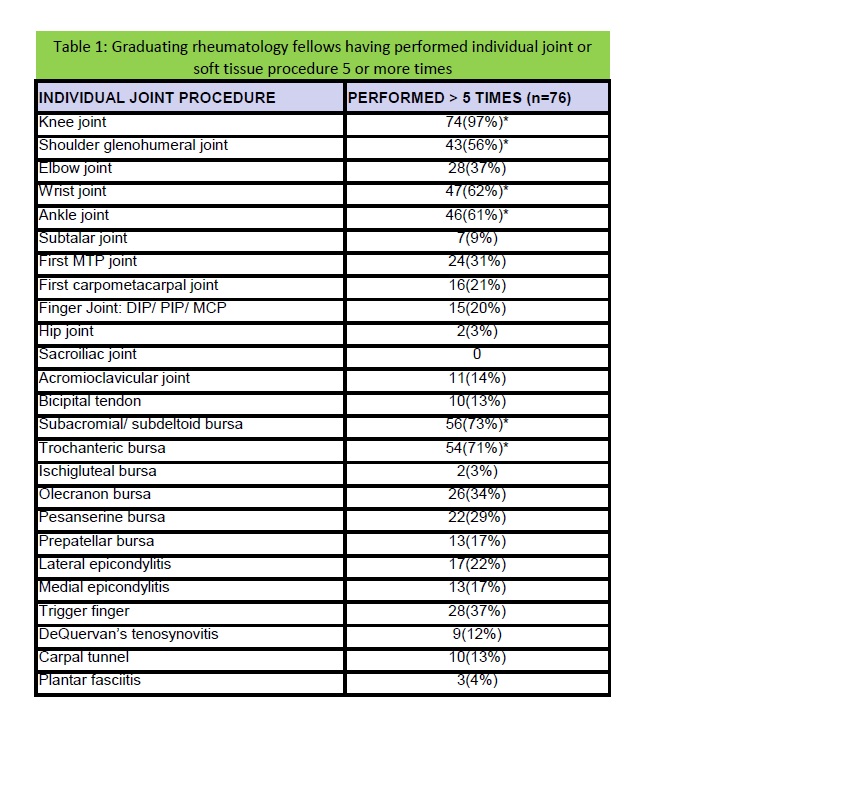Background/Purpose:
Rheumatology training programs require fellows to be proficient in joint procedural skills as a requirement for graduation. However, specific procedures required to attain proficiency in are not clearly defined. A minimum number required for performance of specific procedures to attain proficiency is also not established.
The purpose of our study is two-fold:
- To gather rheumatology fellow’s opinions about the number of times a joint procedure needs to be performed to attain proficiency.
- To assess whether proficiency is attained by graduating fellows in 25 specific procedures generally performed by practicing rheumatologists.
Methods:
An online survey was sent to junior and senior fellows enrolled in adult rheumatology programs in the United States. The survey was sent in April and May 2011, in order to obtain data from fellows near completion of their first or final year or fellowship. The survey included questions pertaining to: year of fellowship training, fellow’s opinion of “average number of times a joint or soft tissue procedure should be performed in order to attain proficiency,” and reported number of times fellows had performed 25 specific procedures during the course of fellowship training.
Results:
Data was collected from senior fellows (n=76) near completion of fellowship training. 57/76 (75%) of graduating fellows felt individual joint procedures be performed 5 or more times to attain proficiency; 14/76 (18%) reported “3 times”; 5/76 (7%) answered “other” and felt it depended on the joint.
Based on the majority of fellow’s views, we used “5” as the minimum number needed to attain proficiency. We identified that 6/25 procedures were performed 5 or more times by greater than 50% of graduating fellows (Table 1): ): knee joint (98%), glenohumeral joint (57%), wrist joint (62%), ankle joint (60%), subacromial / subdeltoid bursa (74%) and trochanteric bursa (72%).
Conclusion:
A substantial number of graduating fellows have not achieved the number needed to perform that most fellows themselves consider necessary to attain proficiency, in procedures commonly performed by practicing rheumatologists. The inadequacy of procedural exposure, and hence proficiency, can be circumvented by training authorities establishing specific, standardized criteria for rheumatology fellowship programs nationwide.
Disclosure:
T. J. Rizvi,
None;
M. Xu,
None;
N. Searle,
None.
« Back to 2012 ACR/ARHP Annual Meeting
ACR Meeting Abstracts - https://acrabstracts.org/abstract/practice-makes-perfect-assessment-of-proficiency-of-rheumatology-fellows-in-specific-joint-procedural-skills/

